Website Temporary Closed
Sega 32X
The Sega 32X (Japanese: スーパー32X) is an add-on for the Sega Mega Drive/Sega Genesis video game console by Sega. In Japan, it was distributed under the name Sega Super 32X. In North America, its name was the Sega Genesis 32X. In Europe, Australia, and other countries that use PAL, it was called the Sega Mega Drive 32X. Most gamers, for simplicity's sake, simply refer to it as the "32X".
With the release of the Super Famicom in Japan and the Super NES in North America, Sega needed to leapfrog Nintendo in the technological department. The Sega Mega-CD aka Sega CD hadn't worked as well as they wanted it to. Sega had various developments underway, named after planets. Some used System 16 technology like the Sega Mega Drive/Sega Genesis did, as well as other arcade games.
[collapse collapsed title=read more...]
The 32X was released in mid-November 1994 in North America for $150, Japan in December 1994, and Europe in January 1995 for £150.
The Sega 32X can only be used in conjunction with a Mega Drive/Genesis system; it is plugged in where the cartridge bay is. Besides playing its own cartridges, it also acted as a pass through for Genesis games so it would be a permanent attachment. The 32X came with 10 coupons and several spacers, so it would work with all versions of the Genesis.
Most 32X games cannot be played on a different region than the one the console came from. A few games are not locked and can be played in any region (e.g. FIFA 96). Two games, Darxide and FIFA Soccer '96, were only released for the PAL 32X.
All but one of the games released for the Japanese market were released in the United States, albeit some had different names. The only Japanese game was Sangokushi IV (known as "Romance of the Three Kingdoms IV").
In addition to regular cartridge-based 32X games, there were also a very small number 32X CD games. As the name suggests, these required both the 32X and Mega CD/Sega CD addons. The lack of a significant userbase due to the high cost of purchasing all three necessary components saw only five games released, only one of those developed by Sega. The most notable of these was a new version of the infamous Night Trap with 32,768 onscreen colours instead of the 64 found on the regular Mega CD/Sega CD version.
On January 8, 1994, Hayao Nakayama, then CEO of Sega, ordered his company to make a 32-bit cartridge based console that would be in stores by Christmas 1994. This would at first be named "Project Jupiter", but after Sega found CD technology cheaper, they decided to modify it instead of dropping the cartridge project (that would be called "Project Saturn"). Hideki Sato and some other Sega of Japan engineers came over to collaborate about the project with Sega of America's Joe Miller. The first idea was a new Sega Mega Drive with more colors and a 32-bit processor. Miller thought that an add-on to the Mega Drive would be a better idea, because he felt that gamers would not buy an improved version of the Mega Drive. And so, this project was codenamed Project Mars, and Sega of America was going to shape the project.
At the same time, however, Sega of Japan was working on the Sega Saturn, a CD-based 32-bit videogame system. Sega of America did not learn of this until Project Mars was already in progress.
The video-gaming public first got a glimpse at the Summer 1994 CES in Chicago, Illinois. Players highly anticipated the system, because it would make the Genesis superior to the Super Famicom/SNES. The console was unmasked as the 32X, with a price projection of $170 (USD), at a gamers' day, held by Sega of America on September 1994.
The 32X hit the market in North America in November 1994, during the same month the Sega Saturn was released in Japan. Many industry insiders speculated that the 32X was doomed from the beginning as the Sega Saturn hardware was widely regarded as more powerful than the 32X and had the support of many Japanese third party software developers (a necessary resource required for any gaming platform's long term success) which the 32X was sorely lacking.
Only 500,000 consoles had been produced for North American consumption, yet orders were in the millions. The console allegedly had numerous mechanical problems. Games had been rushed for the system in the run up to Christmas 1994. Some early games came with errors in programming, causing crashes on certain titles, frequently at the "worst possible moment". Other games required leaving out parts in order to make the Christmas deadline; Doom 32X is missing almost half the levels present on the PC. Many complained that their 32X was not working with their Mega Drive/Genesis or television. Sega was forced to give away adapters. What kept the console alive from 1994 to 1995 was Star Wars Arcade. Otherwise, the console would have gotten even less attention.
Since this was an expensive add-on system, Sega decided to bundle in some games with the console in Europe. However, the offer came in the form of rebate vouchers, which were difficult to take advantage of. Just like its North American counterpart, this console was initially popular. Orders exceeded one million, but not enough were produced, and supply shortage problems arose.
By mid-1995, the time the Sega executives realized their blunder, it was too late. Developers and licensees had abandoned this console in favor of what they perceived to be a true 32-bit console, the Sega Saturn. Even though the 32X was a 32-bit system, the games didn't appear to take full advantage of 32 bit processing; many games were rushed and produced in 2D.
Due to successful marketing, customers perceived the Sega Saturn and the PlayStation as the true next-generation consoles, due to their rich launch titles and 3D graphics. Also, customers perceived that Sega abandoned the 32X despite promises to the contrary, due to the launch of the Saturn.
Console makers, prior to the launch of PlayStation 2, would often abandon platforms and offer no backwards compatibility with older systems. For this reason Sega's 32X customers felt cheated because of the apparent lower quality of the game, and the inevitability of obsolescence.
Store shelves became littered with unwanted Sega 32X systems, and prices for a new one dropped as low as $19.95. Sega planned a console named the Sega Neptune, which would have been a Genesis and 32X in one. However, by the time a prototype was developed, the Sega Saturn was going to be released, and Sega cancelled the Neptune.
The situation became so bad that the 32X was actually mocked on Saturday Night Live, as well as in the gaming magazine Electronic Gaming Monthly, which likened the 32X to a 'waffle maker' and the games as 'batter'. The Sega 32X fiasco is now considered one of the most poorly planned console releases ever.
The last game made for the 32X in the US was Spider-Man: Web of Fire (1996). The last ever 32X game was Darxide, which had been intended by Frontier Developments to be a launch title for the ill-fated Neptune. Both these games now command a high value from collectors—but especially Darxide (up to $1000) due to its scarcity, reputation and auspicious creator (David Braben, co-writer of the groundbreaking game Elite). Nevertheless, it is exceeded in rarity by the European PAL versions of the games Primal Rage and T-Mek. For obscure reasons a mere handful of copies of these games are known to be in circulation - with T-Mek being so scarce that until a copy surfaced on eBay in late 2005, it was widely held that the PAL release was only a rumour. The appearance of a copy has fuelled speculation that other rumoured but unconfirmed PAL games may also exist, in particular BC Racers.
For many years prior, console makers promised devices like the 32X (for consoles such as the Colecovision, Intellivision II, and some Atari systems) that would extend and enhance the original system. The 32X was the first product released that fundamentally altered the original console's abilities. However, deficient in software titles and lacking the 3D capabilities the gaming community demanded, the add-on represented a technological dead end, ultimately punishing early adopters.
Ignorant of the idea that console systems' primary strength is in standardization, Sega had created three different platforms (the main console and the CD and 32X add-ons) all under the same banner, stealing valuable shelf space from itself and confusing both vendors and consumers in the process. The entire episode demonstrated that producing such add-ons is likely to have detrimental effects on a system's brand marketing strategy.
The system ended production worldwide in 1996. Sega wanted an adapter to make the Genesis more powerful than the SNES, but failed to foresee the cost and limitations such a minor upgrade would bring. The failure of the 32X was one of the factors which contributed to Sega's eventual withdrawal from the hardware market..
[/collapse]
- HOME


- PRODUCTS

- 3DO
- Amiga CD32
- Amstrad GX4000
- Atari 2600
- Atari 7800
- Atari Jaguar
- Atari Jaguar CD
- Atari Lynx
- Bandai Wonderswan
- Coleco
- Colecovision
- Famicom
- Famicom Disk System
- Grandstand
- JAMMA
- Mattel Intellivision
- MB
- Microsoft Xbox
- MSX
- Neo Geo AES
- Neo Geo CD
- Neo Geo MVS
- Neo Geo Pocket
- Nintendo 64
- Nintendo Game and Watch
- Nintendo Gameboy
- Nintendo Gameboy Advance
- Nintendo Gameboy Colour
- Nintendo Gamecube
- Nintendo NES
- Nintendo Virtual Boy
- PC Engine
- PC Engine CD
- Philips CDI
- Sega 32X
- Sega Dreamcast
- Sega Game Gear
- Sega Genesis
- Sega Master System
- Sega Mega CD
- Sega Megadrive
- Sega Nomad
- Sega Saturn
- Sony Playstation
- Sony Playstation 2
- Super Famicom
- Super Nintendo
- Texas Instruments
- Tiger Game Com
- Tomy
- Vectrex
- Japanese Video Game Imports
-

- MODIFICATIONS

- Switchless Modification
- Modification Sega 32X
- Modification Sega Dreamcast
- Modification Sega Megadrive
- Modification Neo Geo AES
- Modification Neo Geo CD
- Modification Nintendo NES
- Modification Sega Master System
- Modification Sega Mega-CD
- Modification Sega Nomad
- Modification Sega Saturn
- Modification Super Nintendo
-

- TECHNICAL INFO


- NEWS


- ABOUT US


- MEMBERS


- CONTACT US


Log on
x
Just In!
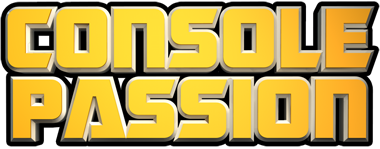
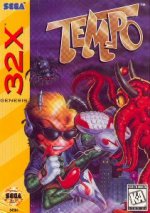
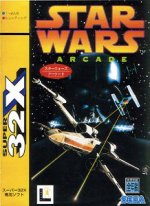
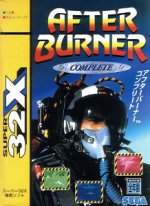
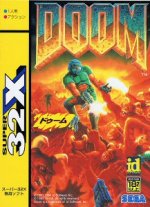
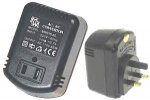
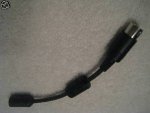
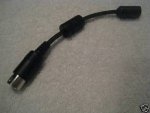
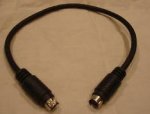



 Save time
Save time